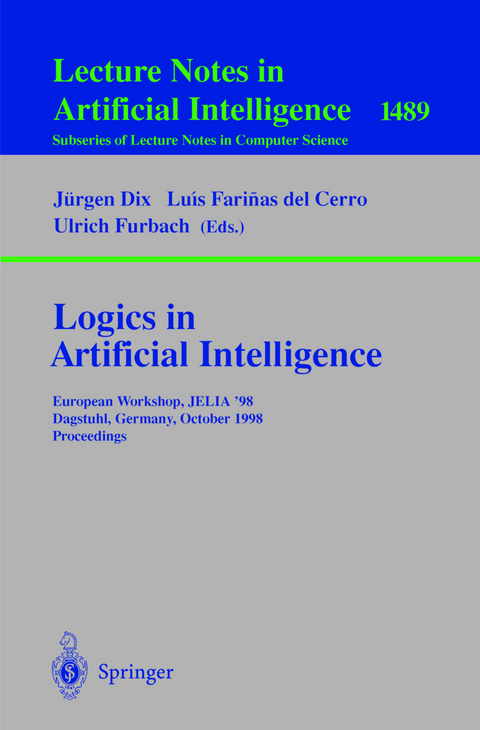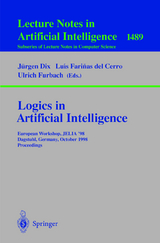Logics in Artificial Intelligence
Springer Berlin (Verlag)
978-3-540-65141-3 (ISBN)
Ulrich Furbach ist Professor für Künstliche Intelligenz an der Universität Koblenz-Landau. Seine Forschungsgebiete umfassen Automatisches Schließen, Agenten und Robotik sowie Frage-Antwort-Systeme. Er ist an der TU München habilitiert, an der Uni der Bundeswehr promoviert und ist Gründer und Gesellschafter des KI-Unternehmens wizAI.
Logic Programming.- The Well-Founded Semantics Is the Principle of Inductive Definition.- Combining Introspection and Communication with Rationality and Reactivity in Agents.- Disjunctive Logic Program = Horn Program + Control Program.- Semantics of Partial-Order Programs.- Epistemic Logics.- Persistence and Minimality in Epistemic Logic.- Prohairetic Deontic Logic (PDL).- Phased Labeled Logics of Conditional Goals.- Theorem Proving.- Analysis of Distributed-Search Contraction-Based Strategies.- A Deduction Method Complete for Refutation and Finite Satisfiability.- Requirement-Based Cooperative Theorem Proving.- ?-Resolution: An Inference Rule for Regular Multiple-Valued Logics.- A Matrix Characterization for .- A Resolution Calculus for Dynamic Semantics.- Algorithms on Atomic Representations of Herbrand Models.- Non-monotonic Reasoning.- On the Intertranslatability of Autoepistemic, Default and Priority Logics, and Parallel Circumscription.- An Approach to Query-Answering in Reiter's Default Logic and the Underlying Existence of Extensions Problem.- Towards State Update Axioms: Reifying Successor State Axioms.- Non-standard Logics.- A Mechanised Proof System for Relation Algebra Using Display Logic.- Relative Similarity Logics are Decidable: Reduction to FO2 with Equality.- A Conditional Logic for Belief Revision.- Implicates and Reduction Techniques for Temporal Logics.- A Logic for Anytime Deduction and Anytime Compilation.- Knowledge Representation.- On Knowledge, Strings, and Paradoxes.- Propositional Lower Bounds: Generalization and Algorithms.- Higher Order Logics.- Higher Order Generalization.- Invited Talks.- The Logical Characterization of Goal-Directed Behavior in the Presence of Exogenous Events Summary.- Towards Inference and Computation Mobility:The Jinni Experiment.
| Erscheint lt. Verlag | 2.10.1998 |
|---|---|
| Reihe/Serie | Lecture Notes in Artificial Intelligence | Lecture Notes in Computer Science |
| Zusatzinfo | X, 390 p. |
| Verlagsort | Berlin |
| Sprache | englisch |
| Maße | 155 x 235 mm |
| Gewicht | 531 g |
| Themenwelt | Informatik ► Theorie / Studium ► Künstliche Intelligenz / Robotik |
| Mathematik / Informatik ► Mathematik ► Logik / Mengenlehre | |
| Schlagworte | algorithms • Artificial Intelligence • automated deduction • boolean satisfiability problem • Control • extension • Intelligence • Knowledge Representation • Künstliche Intelligenz • Logic • Logic Programming • Mathematische Logik • Nonclassical Logics • Nonmonotonic Reasoning • Proof • proving • Resolution • Semantics • theorem proving |
| ISBN-10 | 3-540-65141-1 / 3540651411 |
| ISBN-13 | 978-3-540-65141-3 / 9783540651413 |
| Zustand | Neuware |
| Haben Sie eine Frage zum Produkt? |
aus dem Bereich





